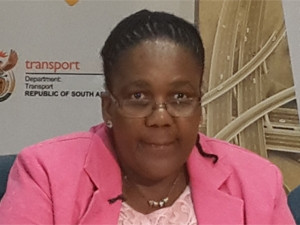
In her opening statement before the e-tolls review panel, transport minister Dipuo Peters reminded organised labour, political parties, interest groups and the public that the Gauteng e-toll project is lawful, and condemned the "lawlessness" surrounding the project.
"This project was not undertaken without thought or consultation - it is not the perfect solution, but doing nothing was not an option," she said.
Peters' comments kicked off the start of three days of presentations by the Department of Transport, National Treasury and the South African National Roads Agency (Sanral).
In July, Gauteng premier David Makhura appointed a 15-member panel to study the socio-economic impact of e-tolling in Gauteng since the system's inception in December last year.
Addressing the panel this morning, Peters stated funding and maintenance - especially of economic infrastructure - requires financing; and financing requires a revenue stream. She defended government's adoption of the user-pay funding mechanism and also attempted to downplay the recent rift in government, caused by the ANC in Gauteng's rejection of e-tolling.
"The work done on the highways in Gauteng cannot be done gratis. There are many alternative options to the user-pay principle punted, with ring-fencing the fuel levy the most vaunted," she said, alluding to the alternative funding mechanism that most of those opposed to e-tolling have been lobbying for.
"But our officials from treasury are here and will outline why the direct user-pay was the preferred method of funding the Gauteng Freeway Improvement Project."
She noted the strategy of employing private sector funds and selectively applying the user pay principle was implemented on some roads to alleviate the shortage of state funds for road construction.
"This gave rise to toll roads. But I must emphasise that we are carefully selective in our use of the user-pay principle. As a result, the ratio between toll and non-toll roads will always be in favour of non-toll roads."
Economic driver
Peters pointed out, according to the National Development Plan (NDP), by 2030 investments in the transport sector will ensure it serves as a key driver in empowering SA and its people, enabling improved access to economic opportunities, social spaces and services by bridging geographic distances affordably.
"The NDP further states that moving towards 2030, South Africa's transport system will support economic development, job creation and growth, providing equitable access to opportunities and services for all and reducing poverty.
"In spite of what may appear as differences between ourselves and the Gauteng province, I am encouraged by the Gauteng Integrated Transport Master Plan, published in 2013, which indicates support for the Gauteng Freeway Improvement Project. In that plan, it describes the project as 'vital for the further development of the province'."
The document, said Peters, which serves as a 25-year planning document for the province, rejects the fuel levy for the funding because it is "not considered as an equitable solution, as all South African citizens will have to pay for infrastructure in Gauteng and fuel consumption does not represent the full structural, congestion and environmental impact of the cost responsibility of especially heavy vehicles".
"This plan... states that the users of transportation infrastructure 'are willing to pay as long as they receive a high quality service in return'. It recommends that alternative funding models should be investigated and that the 'levying of tolls should be part of a holistic approach to road financing and has a role to play in a province such as Gauteng'."
Share